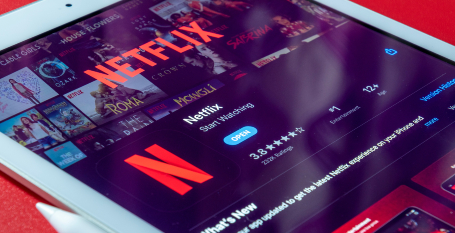A group of Persian Gulf states have threatened Netflix with legal action if it continues broadcasting content that “contradicts” Islam, while Saudi state media indicated that the offending material centred on shows depicting sexual minorities.
A statement issued jointly by the Saudi media regulator and the six-member Gulf Cooperation Council (GCC), headquartered in the Saudi capital, Riyadh, did not specifically identify material, referring only to content that “contradicts Islamic and societal values”.
“The platform was contacted to remove this content, including content directed to children,” the statement said.
Regional authorities “will follow up on the platform’s compliance with the directives, and in the event that the infringing content continues to be broadcast, the necessary legal measures will be taken”.
The Gulf Cooperation Council includes Bahrain, Kuwait, Oman, Qatar, Saudi Arabia, and the United Arab Emirates.
Elijah Mckenzie-Jackson, left, and Jerome Foster.
UN urged to move Cop27 from Egypt over ‘LGBTQ+ torture’
Read more
There was no immediate reaction from Netflix.
While the GCC did not specifically identify the content deemed offensive, one segment on the Saudi state-run Al-Ekhbariya news channel deplored “movies and series for children with scenes promoting homosexuality under a dramatic cover via Netflix”.
A lawyer said in an on-air interview that these were “very unfortunate and painful clips for our children, grandchildren and the next generation”.
Advertisement
A separate segment, also on Al-Ekhbariya, showed clips from the animated show Jurassic World Camp Cretaceous in which two female characters kiss, though the channel blurred their faces.
The channel interviewed a self-described “family and educational adviser” who said offensive material was “sneaking into our homes” and that the country faced a “censorship crisis”.
Gulf countries have repeatedly clashed with US film distributors over content related to sexual minorities, especially in films.
The United Arab Emirates in June banned the Disney animated film Lightyear which contains a lesbian kiss.
The UAE is considered one of the more liberal countries in the Gulf region, though films with adult content are routinely cut or edited.
Saudi Arabia, which only opened cinemas in 2017, asked Disney in April to cut “LGBTQ references” in the Marvel superhero film Doctor Strange in the Multiverse of Madness.
Disney did not comply and the film was not screened in the kingdom.
In June, Saudi state media filmed officials seizing rainbow-coloured toys and articles of clothing from shops in the capital as part of a crackdown on homosexuality, which is a potential capital offence in Saudi Arabia.
Items targeted in the raids included rainbow-coloured bows, skirts, hats and pencil cases, most of them apparently manufactured for young children.
Six of the Gulf states have threatened legal action against global streaming giant Netflix on the basis that it is broadcasting content that "contradicts" Islam.
Led by the media regulator in Saudi Arabia, the six-member Gulf Cooperation Council has issued a statement confirming that the legal action is being brought forward because Netflix is broadcasting content that goes against the region's "societal values", adding that Netflix has been contacted with a request to remove the offending content.
The Gulf Cooperation Council (GCC) includes Bahrain, Kuwait, Oman, Qatar, Saudi Arabia, and the United Arab Emirates.
It's not exactly clear what specific content that the GCC authorities are referring to, but media coverage of the matter in Saudi Arabia seems to confirm that the concerns are specifically around content that features LGBTQ characters or storylines. Highlighting as a specific concern that content targeted at children may include references to LGBTQ people.
This latest statement from the GCC is part of an ongoing tension between countries seeking to tightly control and censor what content people can access, against a changing distribution landscape that gives audiences access to a greater range of on-demand international content.

